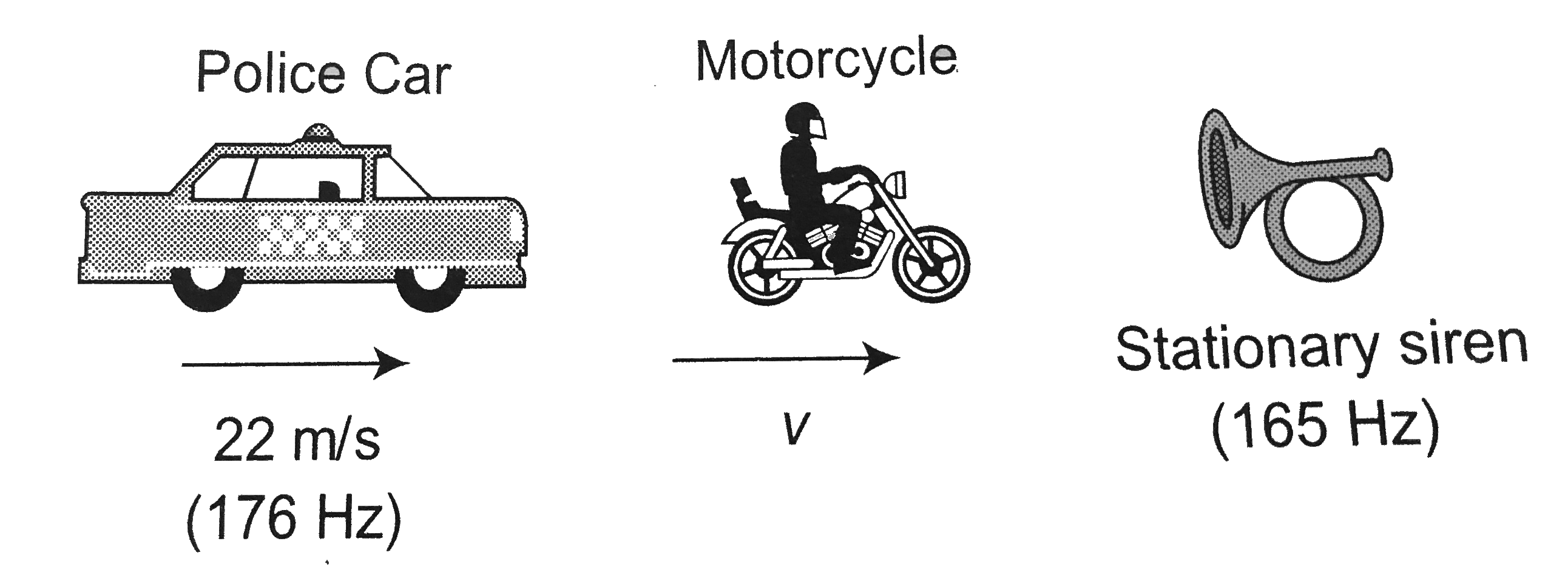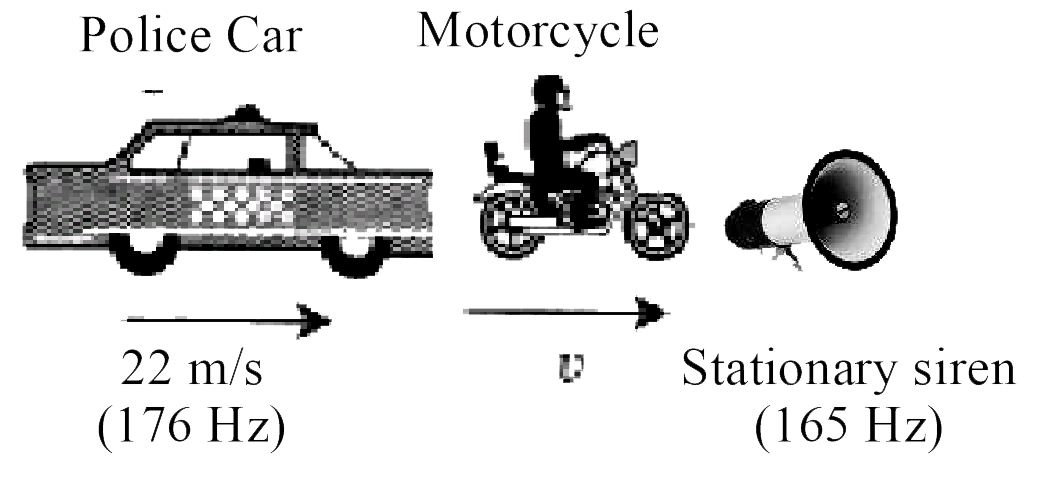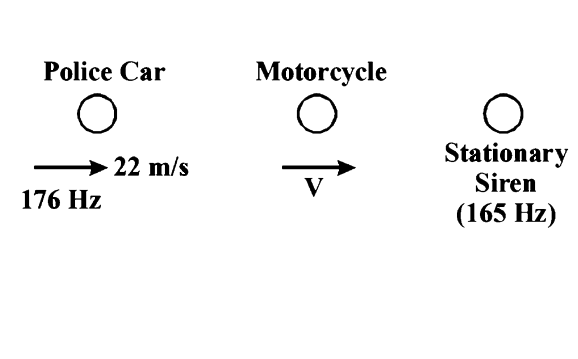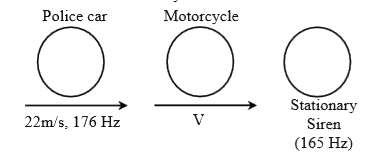
A police car moving at 22m/s, chases a motorcyclist, the police man sounds his horn at 176Hz, while both of them move towards a stationary siren of frequency 165Hz. Calculate the speed of the motorcycle, if it is given that he does not observes any beat
33ms
22ms
11ms
zero
The correct Answer is:C
n1=n2⇒v−vmv−vCn'=v+vmvn
⇒v−vmv−22×176=v+vmv×165
⇒nm=22ms
Topper's Solved these Questions
- SOUND WAVES AND DOPPLER EFFECTBOOK - CENGAGE PHYSICSCHAPTER - SOUND WAVES AND DOPPLER EFFECTEXERCISE - Multiple Correct
44 Videos
- SOUND WAVES AND DOPPLER EFFECTBOOK - CENGAGE PHYSICSCHAPTER - SOUND WAVES AND DOPPLER EFFECTEXERCISE - Assertion-Reasoning
24 Videos
- SOUND WAVES AND DOPPLER EFFECTBOOK - CENGAGE PHYSICSCHAPTER - SOUND WAVES AND DOPPLER EFFECTEXERCISE - Subjective
56 Videos
- RIGID BODY DYNAMICS 2BOOK - CENGAGE PHYSICSCHAPTER - RIGID BODY DYNAMICS 2EXERCISE - Interger
2 Videos
- SUPERPOSITION AND STANDING WAVESBOOK - CENGAGE PHYSICSCHAPTER - SUPERPOSITION AND STANDING WAVESEXERCISE - Comprehension Type
5 Videos
Similar Questions
A police car moving at 22 m/s, chases a motorcylist. The police man sounds his horn at 176 Hz, while both of them move towards a stationary siren of frequency 165 Hz. Calculate the speed of the motorcycle, if it is given that he does not observes any beats

View SolutionA police car moving at 30 m s−1, chases a motorcyclist. The policeman sounds his horn at 180 Hz, while both of them move towards a stationary siren of frequency 160 HZ. He does not observe any beats then, calculate the speed (in m s−1) of the motorcyclist round off two decimal places? [speed of sound =330ms−1]
View Solution
Knowledge Check
A police car moving at 22m/s, chases motorcyclist. The police man sounds his horn at 176Hz, while both of them move towards a ststionary siren of frequency 165Hz. Calculate the speed of the motorcycle, if it is given that he does not observes any beats.
 A33m/sB22m/sCzeroD11m/s
A33m/sB22m/sCzeroD11m/sA police car moving at 22m/s chases a motorcyclist. The police man sounds his horn at 176 Hz, while both of them move towards a stationary siren of frequency 165 Hz. Calculate the speed of the motorcycle. If it is given that the motorcyclist does not observe any beats:
 A33m/sB22m/sCzeroD11m/s
A33m/sB22m/sCzeroD11m/sA police car moving at 30 m s−1, chases a motorcyclist. The policeman sounds his horn at 180 Hz, while both of them move towards a stationary siren of frequency 160 HZ. He does not observe any beats then, calculate the speed (in m s−1) of the motorcyclist round off two decimal places? [speed of sound =330ms−1]
A2ms−1B30ms−1C35.02ms−1D40ms−1
The frequency of the whistle of a train is observed to drop from 280 Hz to 260 Hz as the train moves away from a stationary listerner on the platform. Calculate the speed of the train, if speed of sound in air is 340 m/s.
View SolutionThe frequency of the whistle of a train is observed to drop from 280 Hz to 260 Hz as the train moves away from a stationary listerner on the platform. Calculate the speed of the train, if speed of sound in air is 340 m/s.
View SolutionA police car moving at 22m/s, chase a motoclist. The police man has horn at 176HZ, While both of them move towards a stationary siran of frequency 165HZ. Calulate the speed of the motorcyclist, if he does not observer any beats. (velocity of sound in air =330m/s)

View SolutionA car is moving with a velocity of 5m/s towards huge wall. The driver sounds a horn of frequency 165Hz. If the speed of sound in air is 335m/s, the number of beats heard per second by the driver is
View SolutionA source emits sound with a frequency of 1000 Hz. It is moving at 20 m/s toward a stationary reflecting wall. If the speed of sound is 340 m/s an observer at rest directly behind the source hears a beat frequency of
View Solution
